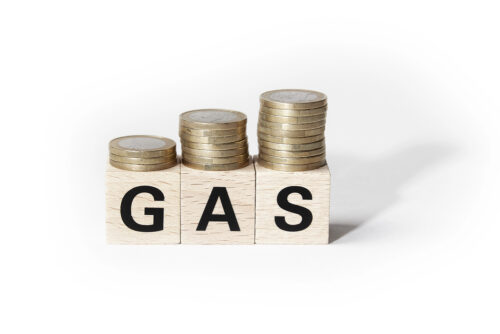Industrial Energy Costs in the Gas Crisis
Energy costs for British industry as a whole surged by £29bn during crisis, with price of gas ‘key driver’.
Last updated:
The UK has been the worst hit by the gas crisis of all countries in Western Europe, and UK industry has paid a heavy price. The cost to the UK’s industrial sector has been an extra £29bn in energy bills the over the first four years of the gas crisis (2021–2024) compared to the four years (2016–2019) before the pandemic.
Industry leaders agree that these extra energy costs have been almost entirely due to the high wholesale price of gas.
In particular, the UK’s steel sector had paid almost £1.8bn in extra energy costs in the gas crisis by the end of 2024 – 80% higher than in the four years before the pandemic, even as the sector’s output fell by around 40% over that same period. These extra costs were split roughly evenly between direct impacts on gas bills, indirect impacts on electricity bills via gas power plants, and other fuels that have become more expensive as some other users have switched away from gas. These costs are being borne at a time when the steel industry is the subject of increased political attention in light of new infrastructure projects including rail and renewables, demand from the automotive sector during the EV transition, and rising demand from the defence sector in response to the threat from Russia.
Industrial energy costs and the UK’s international competitiveness have been the subject of debate for many years, in particular the price for electricity compared to France and Germany.
Policy changes made last year have significantly reduced the amount that UK energy-intensive industries pay for electricity networks and policy costs, but price differentials remain between the UK and France and Germany. Those policy changes highlight that the underlying issue is the UK’s wholesale electricity price, which is set largely by gas power plants.
In most of the years since 2016–17 when data was first compared, the wholesale cost component of UK steel sector electricity prices has – by itself – been larger than the total price paid by competitors in France or Germany – for their wholesale, networks and policy costs combined. This has led industry leaders to call for new renewables and nuclear power stations, plus market reform, to reduce the price impact of gas power plants.
Energy price shocks like the one starting in 2021 happen about once every decade on average, and can act as pivotal moments in countries’ energy policy approaches. For example, the oil crisis of the 1970s led to major drives for energy efficiency in some parts of the world, albeit not so much in the UK which instead pursued fossil fuels. This current gas crisis arrived when UK industry was already considering its options for low-carbon energy, and the ongoing high cost of the crisis has served as a powerful reminder of the merits of moving away from fossil fuels priced by international markets and towards UK-based renewables.
